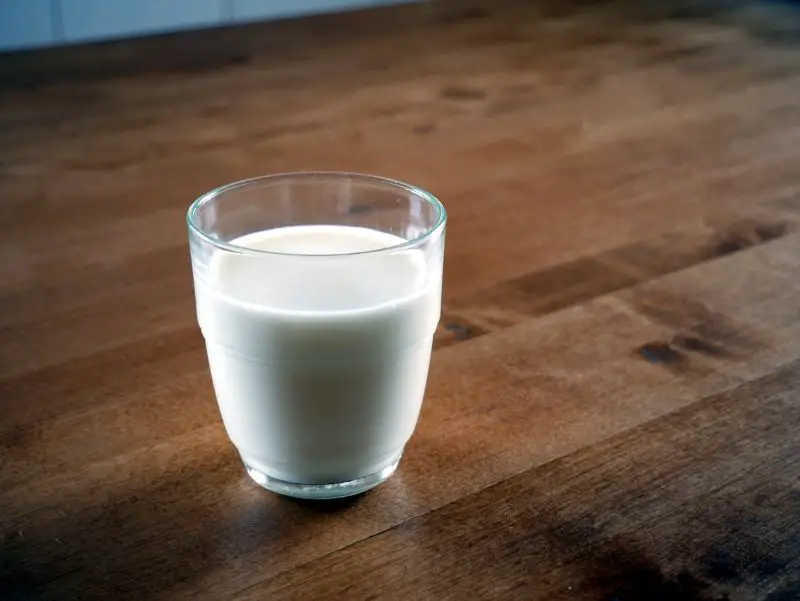
If you’re trying to lose weight, every calorie counts. Choosing suitable milk can help control your food intake and promote weight loss.
This article explores what milk is best for weight loss, including popular options such as soy, almond, unsweetened almond, coconut, and more.
Table of Contents (click to expand)
Introduction
When it comes to losing weight, many people overlook milk and dairy products’ role in their diet. While milk provides essential nutrients such as calcium, protein, and vitamin D, it can also contain saturated fat and lactose, which may not be ideal for lactose intolerant or follow a low-carb diet.
That’s why choosing the right milk can make a big difference in your weight loss journey. This article will examine some of the best weight-loss milk options, including plant-based and dairy alternatives.
Soy Milk
Soy milk is a popular dairy alternative made from whole soybeans or protein isolate. It is naturally lactose-free and has a lower calorie count than cow’s milk, making it an excellent choice for those trying to lose weight.
One cup of unsweetened soy milk contains only 80 calories, compared to 146 calories in whole cow’s milk. Soy milk is also high in protein, providing about 7 grams per cup, which can help increase insulin sensitivity and promote weight loss. Additionally, soy milk is rich in medium-chain triglycerides (MCTs), which can help burn fat and boost energy levels.
Studies have shown that soy milk may benefit women trying to lose weight. One study found that postmenopausal women who consumed soy protein had significantly lower body weight and fat mass than those who consumed dairy protein.
Additionally, research has suggested that soy protein may help reduce abdominal fat and improve cholesterol levels.
When choosing soy milk for weight loss, it’s essential to opt for unsweetened varieties, as sweetened soy milk may contain added sugars that can lead to weight gain.
Almond Milk
Another popular dairy alternative is almond milk from ground almonds and water. Like soy milk, almond milk is naturally lactose-free and has fewer calories than cow’s milk.
One cup of unsweetened almond milk contains only 30-40 calories, compared to around 146 calories in a cup of whole cow’s milk. Almond milk is also naturally rich in healthy fats, such as monounsaturated and polyunsaturated fats, which can help control appetite and promote weight loss.
However, almond milk is lower in protein than cow’s, providing only about 1 gram per cup. This means it may not be the best option for those seeking to increase their protein intake. Additionally, almond milk may not be suitable for those with nut allergies.
Unsweetened Almond Milk
Unsweetened almond milk may be a good choice if you’re looking for an even lower-calorie option. This variety of almond milk contains only 18-25 calories per cup, making it one of the lowest-calorie milk options available.
Unsweetened almond milk is also low in carbohydrates, making it ideal for those following a low-carb diet or looking to control their blood sugar levels.
However, like regular almond milk, it is lower in protein than cow’s milk and may not be the best option for those looking to increase their protein intake.
Coconut Milk
Coconut milk is another popular dairy milk alternative made from coconuts, another plant-based milk; coconut milk has more fat and calories, providing around 230 calories per cup.
However, the fat in coconut milk is primarily composed of medium-chain triglycerides (MCTs), which can boost energy levels and promote weight loss. Additionally, coconut milk is naturally rich in vitamins and minerals such as potassium and magnesium, which can benefit bone health and overall well-being.
When choosing coconut milk for weight loss, it’s essential to opt for unsweetened varieties, as sweetened coconut milk may contain added sugars that can lead to weight gain.
Oat Milk
Oat milk is a newer plant-based milk option that has recently gained popularity. It is made from oats and water and has a creamy texture similar to cow’s milk.
One cup of oat milk contains around 120-130 calories, which is still lower than whole milk but higher than other plant-based milk. Oat milk is also naturally high in dietary fiber, providing around 2-4 grams per cup.
Some studies have suggested that oat milk may help reduce cholesterol levels and improve heart health. However, more research is needed to confirm these benefits.
Comparing Milk Types
When choosing a non-dairy milk alternative, the options can seem overwhelming. Soy, almond, unsweetened almond, and coconut milk are popular choices, but how do they compare?
Nutritional Content:
Soy milk is often touted as the most nutritionally similar to cow’s milk. It is high in protein and calcium and often fortified with vitamin D. Almond milk is lower in calories and fat than soy milk but also lower in protein.
Unsweetened almond milk is even lower in calories, and coconut milk is high in healthy fats but low in protein.
Taste and Texture:
Soy milk has a creamy texture and a slightly nutty taste, while almond milk has a light, nutty flavor, and a thinner consistency. Unsweetened almond milk has a more subtle flavor, and coconut milk has a sweet, nutty taste with a thicker consistency.
Best for Weight Loss:
If weight loss is your goal, the best option may be unsweetened almond milk. It is low in calories and fat, making it an excellent choice for those watching their waistline.
Choosing low-fat or non-fat options can also help reduce calorie intake. Avoiding sweetened varieties is critical, as they are often high in added sugars.
The best way to support a healthy weight is to incorporate milk into a balanced diet and plenty of fruits, vegetables, whole grains, and lean proteins.
Other Considerations for Milk and Weight Loss:
In addition to choosing the right type of milk, there are other factors to consider when using milk for weight loss. Here are some tips to keep in mind:
Portion control
Even low-calorie milk can contribute to your overall calorie intake if consumed in large quantities. Stick to one cup (8 ounces) of milk per serving to keep your calorie count in check.
Choosing low-fat or non-fat options
If you opt for dairy milk, choose low-fat or non-fat varieties such as skim or 1% to reduce your saturated fat intake.
Avoiding sweetened varieties
Many dairy and plant-based milk types are available in sweetened varieties that can add extra calories and sugar to your diet. Opt for unsweetened varieties whenever possible.
Incorporating milk into a balanced diet
While milk can be a healthy addition to your diet, it should not be the sole focus of your weight loss efforts.
Make sure to incorporate a variety of other nutrient-dense foods such as fruits, vegetables, lean proteins, and whole grains to ensure a balanced diet.
Which milk can be used for weight loss?
Most types of milk can be included in a weight loss plan as long as they are factored into your total daily calorie intake. Skim or low-fat milk options are often chosen due to their lower calorie content than whole milk.
Plant-based alternatives like almond, soy, or oat milk, especially unsweetened, can be a good option. These milk alternatives usually contain fewer calories than cow’s milk, provided they are not flavored or sweetened. Your best choice will depend on your dietary needs and preferences.
Is milk or almond milk better for weight loss?
Cow and almond milk can be included in a weight loss plan but offer different nutritional profiles. Cow’s milk, even low-fat or skim versions, contains more protein than almond milk, making you feel full and satisfied.
On the other hand, unsweetened almond milk is typically lower in calories and may be a better option if you strictly count calories. However, it’s lower in protein and often has added vitamins and minerals to match the nutritional profile of cow’s milk.
What kind of milk is healthiest?
The healthiest milk for you depends on your individual dietary needs and restrictions. Cow’s milk is rich in protein, vitamins, and minerals, but it also contains saturated fat and can be high in calories in its whole form. Low-fat or skim cow’s milk provides the same nutrients but with less fat and fewer calories.
Plant-based milk, such as almond, soy, and oat milk, often has fewer calories and less protein than cow’s milk, but it can be a good choice for lactose-intolerant vegans or looking to reduce their intake of animal products.
Is coconut milk or almond milk better for weight loss?
Almond and coconut milk can be part of a weight loss diet. However, they offer different nutritional benefits. Unsweetened almond milk is typically lower in calories and fat than coconut milk, making it a better choice if you strictly control your calorie intake.
Coconut milk, mainly used in cooking, is high in saturated fats and calories, so it may not be the best choice for weight loss. However, coconut milk beverage, which is diluted and often found in the dairy section, has a similar calorie content to almond milk. As with all foods and drinks, both should be consumed as a balanced diet.
Conclusion
When it comes to weight loss, choosing the right type of milk can make a big difference in your caloric intake and overall health. Plant-based milk such as soy, almond, unsweetened almond, and coconut milk can provide a lower-calorie alternative to dairy milk while still providing essential nutrients such as calcium and vitamin D.
Ultimately, the best milk for weight loss depends on your preferences and dietary needs. Whether you choose dairy milk or a plant-based alternative, pay attention to portion sizes and avoid sweetened varieties that can contribute to weight gain.
By incorporating the correct type of milk into your diet and making other healthy lifestyle choices, you can take control of your weight loss journey and achieve your goals.





































